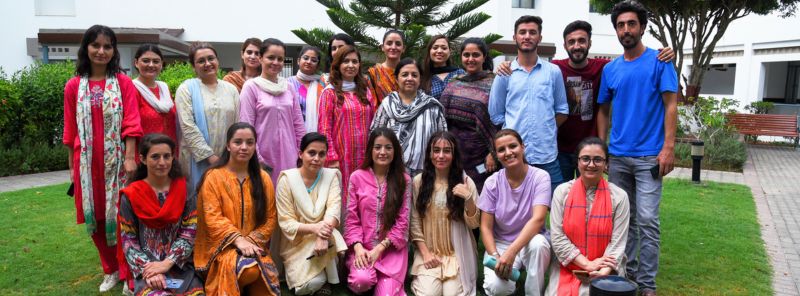Using Interactive Voice Response (IVR) technology as a Remote Learning Solution to Address Learning Losses in Secondary Schools in Karachi, Pakistan
Funding organization: Monash University
Duration: July 2023 - December 2024
Implementers: AKU-IED
Target region: Karachi, Pakistan

Objectives
The study aimed to assess the feasibility and effectiveness of using an IVR system to enhance learning outcomes among secondary students. in Karachi's government schools. By addressing critical learning gaps in Math and English, the project aimed to provide an equitable learning opportunity for students from disadvantaged socio-economic backgrounds.
Baseline Assessment
To better understand the learning gaps and the socio-economic context of the students, a baseline assessment was conducted. This included:
- Sample Size: 4906 students from 225 schools.
- Data Collection Methods:
- Student Assessment: Focused on understanding students' current knowledge in Maths and English.
- Teacher and School Head Interviews: To gather insights into teaching practices and facilities available at school.
- Household Survey: To assess the socio-economic background of students, which is critical in understanding the barriers to learning.
The baseline survey helped identify key areas of improvement in students' conceptual understanding of Math and English.
Intervention Development and Implementation
Based on the insights from the baseline assessment, an intervention strategy was developed. This included:
- Learning Objectives Indentification: Specific Student Learning Outcomes (SLOs) were mapped from the National Curriculum of grade 6 to 8.
- Module development: 60 audio lessons for both English and Math were developed, tailored to meet the identified learning gaps.
- Resource Packs: For each subject, resource packs were developed which contained tasks and exercises based on each lesson. These resources packs were distributed to the students selected for intervention
- Control and Treatment Groups: The intervention was implemented with 4790 students divided into control and treatment groups, with 53 mentors supporting the learning of the students of the intervention group.
The intervention used the IVR system to deliver lessons to students, providing an accessible and cost-effective tool to support their learning outside the classroom.
Qualitative Research Component
The project also included qualitative research to gain deeper insights into the experiences of the students, parents, and teachers:
- In-depth Interviews: Conducted with 12 students and their parents to understand their experiences with the intervention and its perceived impact on learning.
- Teacher Interviews: 8 teachers were interviewed to assess the effectiveness of the intervention from a teaching perspective and to evaluate student performance.
Endline Assessment
Following the intervention, an endline assessment was conducted to evaluate its impact on student learning outcomes. The goal was to determine the effectiveness of the IVR-based solution. This assessment serves as the final measure of the intervention's success in addressing the identified learning gaps.
Impact and Future Directions
The results from the endline assessment will inform future steps for scaling this intervention, with a focus on leveraging low-tech solutions to improve learning outcomes in similar educational contexts. The findings will also provide valuable insights into how affordable technologies can be used to support education in underserved areas.


